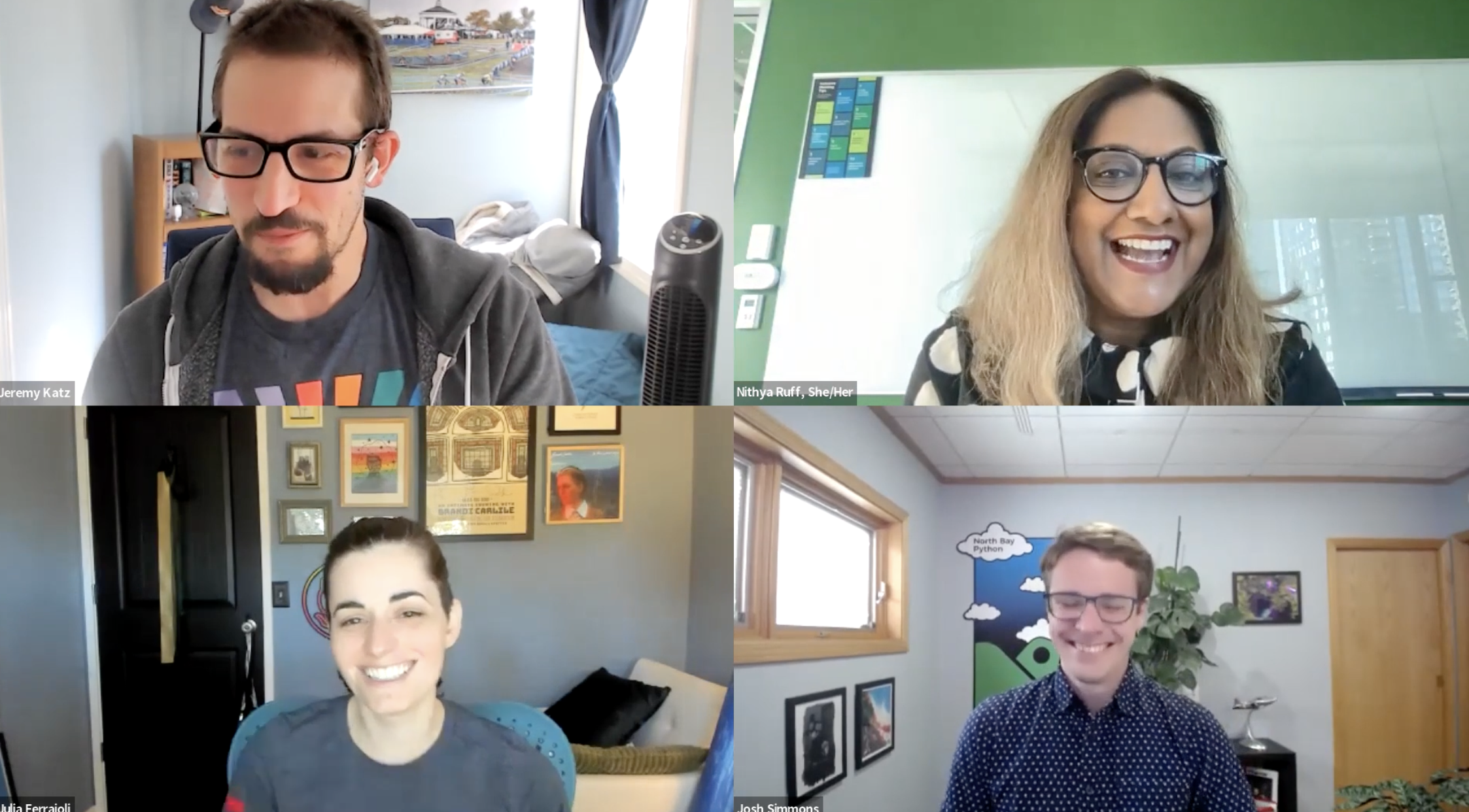On Tuesday, October 11th, in partnership with AWS, Tidelift’s foundations advocate, Josh Simmons, and Tidelift co-founder and head of engineering Jeremy Katz sat down with Nithya Ruff, head of the open source program office at AWS, and Julia Ferraioli, open source technical leader at Cisco, to discuss the current state of inclusivity in open source and how leaders and developers can incorporate inclusive development in the organizations and communities they lead.

After kicking things off with introductions, the panel discussion opened with Josh asking, “What are your initial thoughts on the state of inclusivity in open source today?”
Nithya summed the panel’s thoughts up well: “Things are changing but it’s very slow. It’s not very good right now.”
In response, Julia added, “We have made progress in some dimensions, but we’re not even tracking others. It’s a poorly distributed improvement on the inclusivity front.”
One area in particular of inclusivity needing improvement is addressing disability in the open source community, to which Julia said, “In order to participate in open source, if you’re not getting paid for it, you need to have the time and energy. And for people who are disabled—and I’m a disabled individual— it is a full time job on top of my full time job. We aren’t tracking how we’re doing with being proactively inclusive of disabled contributors. And I say that participating in multiple working groups across the industry. Even something as simple as getting captions turned on is a production, and this is very indicative of who gets to show up and participate.”
When discussing the improvements made in the open source community, Nithya pointed out that open source has a low barrier to entry especially with the rise of virtual events. However, “the complexity of getting involved, navigating, and working through feedback makes it harder to get involved.” Obstacles such as low internet speeds, reliable computers, and the often present need to know English can make this low barrier of entry steep.
The above is only a sample of the panel’s enlightening discussion. The panel goes on to discuss other topics such as:
- The work culture differences between working in proprietary software and open source
- Documentation such as improved commit notes and better READMEs
- The pros and cons of standardized checklists when starting a project
- Mentorship versus sponsorship
To hear more about the current state of inclusive development, including an engaging Q&A, you can use this link to watch the full webinar now. We also recommend checking out our Maintainer state of the union panel and our Open source citizenship panel from this year’s Upstream.


 50 Milk St, 16th Floor, Boston, MA 02109
50 Milk St, 16th Floor, Boston, MA 02109